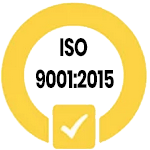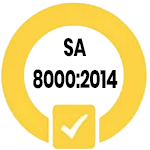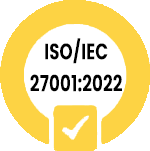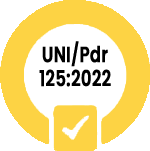The Notice concerns the financing of photovoltaic systems to be installed on buildings for productive use in the agricultural, livestock and agro-industrial sectors, with the residual resources of the PNRR M2C1 I 2.2 "Agrisolare Park" measure. The available resources amount to approximately 1 billion euros.
Eligible subjects
a) agricultural entrepreneurs, individually or corporately;
b) agro-industrial companies;
c) independently of their members, agricultural cooperatives carrying out activities referred to in article 2135 of the civil code and cooperatives or their consortia referred to in article 1, paragraph 2, of legislative decree 18 May 2001 n. 228;
d) the subjects referred to in letters a), b) and c) constituted in aggregate form such as, by way of example and not limited to, temporary business associations (ATI), temporary business groupings (RTI), business networks, communities renewable energy (CER).
Subjects exempted from VAT accounting keeping, with an annual turnover of less than €7,000.00, are excluded.
For the purposes of identifying the Beneficiaries, the following definitions apply:
- agricultural entrepreneur is someone who, registered in the special section of the business register, in the form of a natural or legal person, carries out one of the following activities, as provided for by the art. 2135 and subsequent amendments of the Civil Code: land cultivation, forestry, animal breeding and related activities;
- agro-industrial enterprise is the company which, active in the processing and transformation of agricultural products, at the date of submission of the Proposal is in possession, as the prevailing ATECO code, of one of the ATECO codes in the list published on the Ministry website (below , also ATECO List).
- agricultural cooperative, also in the form of a consortium, is the company which, like an agricultural entrepreneur, carries out one of the activities of land cultivation, forestry, animal breeding and related activities, and is registered in the special section of the business register.
The beneficiary must have the availability of the buildings on which the interventions are carried out;
What it finances
The interventions eligible for the subsidy, to be carried out on the roofs/coverings of buildings used for agricultural, livestock and agro-industrial activities, must include the installation of photovoltaic systems, with a peak power of no less than 6 kWp and no more than 1000 kWp.
Together, one or more of the following redevelopment interventions can be carried out for the purpose of improving the energy efficiency of the structures:
a) removal and disposal of asbestos (and, if applicable, eternit) from roofs, in compliance with current national sector legislation: this procedure must be carried out only by specialized companies, registered in the appropriate register;
b) implementation of thermal insulation of the roofs: the technical report of the qualified professional must describe and justify the choice of the degree of insulation envisaged based on the specific production purposes of the building;
c) creation of a ventilation system connected to the replacement of the roof (air gap): the professional's report must account for the ventilation methods envisaged based on the production destination of the building; in any case, the ventilation system must be implemented
- For agricultural companies active in primary production, their own self-consumption is financed, or shared self-consumption in the event that the same companies are set up in an aggregate form. The non-repayable contribution payable in this case covers up to 80%.
For projects exceeding the self-consumption constraint, for the entire project:
– Non-repayable contribution up to 50% for small businesses
– Non-repayable contribution up to 40% Average
– Non-repayable contribution up to 30% for adults
15% increase for investments made in assisted areas that satisfy the conditions set out in the art. 107, par. 3, letter. a) of the Treaty (SOUTH Italy).
- For companies active in the agricultural product transformation sector, their own self-consumption is financed, or shared self-consumption in the event that the same companies are set up in an aggregate form.
The non-repayable contribution payable in this case covers up to 80% if the power of the photovoltaic system is between 6 kWp and 200 kWp; – Non-repayable contribution up to 65% if the power of the photovoltaic system is between 200 kWp and 500 kWp;
– Non-repayable contribution up to 50% if the power of the system is greater than 500 kWp up to a maximum of 1000 kWp. - For companies that transform agricultural products into non-agricultural products and other companies not included in the definitions above, their own self-consumption is financed, or shared self-consumption in the event that the same companies are set up in an aggregate form.
– Non-repayable contribution up to 50% for small businesses
– Non-repayable contribution up to 40% Average
– Non-repayable contribution up to 30% for adults
15% increase for investments made in assisted areas that satisfy the conditions set out in the art. 107, par. 3, letter. a) of the Treaty (SOUTH Italy).
Large companies must describe in the application the situation in the absence of aid, indicate which situation is specified as a counterfactual scenario or alternative project or activity and provide supporting documents to support the counterfactual scenario
described in the application. through ventilated roof and air evacuation chimneys.
Eligible expenses
a) for the construction of photovoltaic systems:
- purchase and installation of photovoltaic modules, inverters, management software, further system components;
- storage systems;
- supply and installation of the materials necessary for carrying out the interventions;
- grid connection costs
a) up to a maximum limit of euro 1,500.00/kWp for the installation of photovoltaic panels, also taking into consideration the overall size of the system to be built and the related economies of scale, and up to further euros 1,000.00/kWh where storage systems are also installed. In any case, the maximum allowable expenditure for storage systems cannot exceed €100,000.00. If electric charging devices are installed for sustainable mobility and agricultural machinery, an expense up to a maximum allowable limit of €30,000.00 may be recognised, in addition to the limits indicated above, according to the amounts and quantities that they will be identified in detail in the following
I notify;
b) for the removal and disposal of asbestos, where present, and the execution of interventions to create or improve the thermal insulation and insulation of the roofs and/or the creation of a ventilation system connected to the replacement of the roof (cavity of air): demolition and reconstruction of the roofs and supply and installation of the materials necessary to carry out the interventions, up to a maximum allowable limit of euro 700.00/kWp.
For all the interventions listed above, design costs, certifications and other professional costs required by the type of work are eligible - within the maximum limits indicated - including those relating to the preparation and presentation of the application, works management and testing, if provided by subjects external to the company.
Leasing purchase is not permitted
Value added tax (VAT) is an eligible cost only if it is not recoverable in compliance with the relevant national legislation. However, this amount must be promptly tracked for each project in the management information systems.
The construction of photovoltaic systems on roofs that are different from those on which asbestos (and, if applicable, eternit) is being removed is permitted, provided they belong to the same building.
Reclamation work is also permitted on surfaces larger than those of the installation of photovoltaic systems, provided they belong to the same building.
The projects must be started following the submission of the application by the beneficiary. All expenses are eligible starting from the moment the application is submitted by the Beneficiary.
The beneficiary subjects will have to carry out, test and report the interventions within 18 months from the date of publication of the list. The maximum amount of the contribution is paid in a single payment at the conclusion of the intervention, without prejudice to the right to grant, upon request of the Beneficiary subject and within the limits of the availability of resources, an advance of up to 30%, upon presentation of suitable suretyship issued by primary banking institutions that meet the solvency requirements established by law or by primary insurance companies.
Presentation
At the counter starting from 12:00 on 12 September 2023 and until 12:00 on 12 October 2023.





